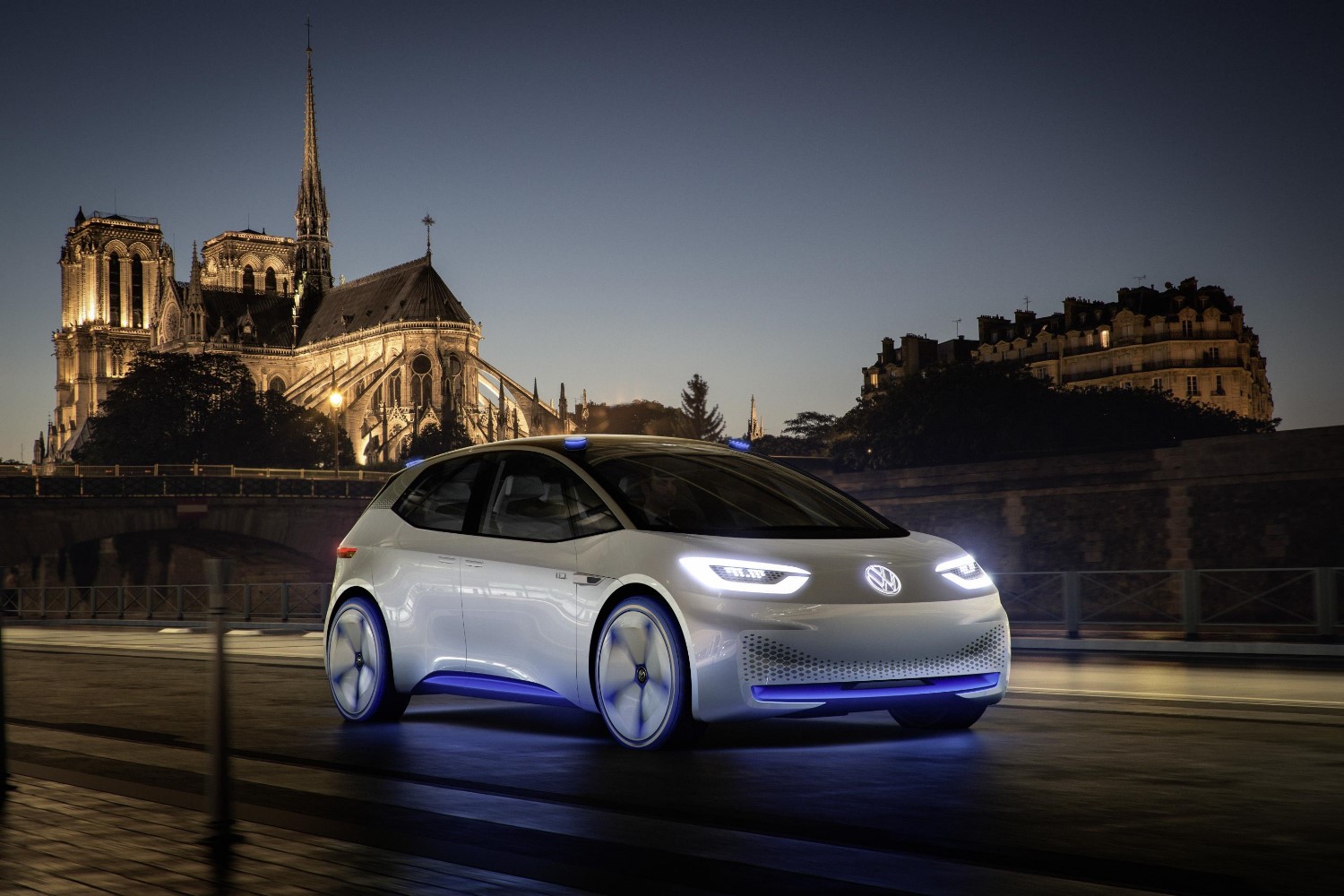2016 will be the year Electric Vehicles (EVs) reach their tipping point
 |
| Volkswagen unveiled its I.D. concept vehicle, which is expected to spawn a production version by 2020 |
When future historians transcribe the evolution of the automobile, it may well be that 2016 will be seen as the tipping point for the transition to electric vehicles writes Gerry Malloy Co-Founder And President Of The World Car Awards.
Not just further electrification, which includes the on-board generation of electricity in hybrid form – that direction has been established for years – but full-on electric vehicles with energy supplied from an outside source such as the electricity grid or hydrogen for a fuel cell. The vehicles commonly referred to just as EVs.
They're certainly nowhere near a tipping point in terms of sales as they account for a miniscule proportion of new vehicles sold globally each year – typically less than one percent. But the point does seem to have been reached where the automakers themselves have accepted the inevitability of a future that is substantially electric.
If that acceptance has previously seemed half-hearted, it has now turned to commitment for many, as was prominently on display at the recent Mondial de l'Automobile auto show in Paris.
Several major automakers, particularly the Europeans, introduced or made significant announcements about new EVs at the show – not just concepts but forthcoming production vehicles and, in some cases, EV sub-brands
"We're now flipping the switch," said Daimler CEO, Dieter Zetsche, as he announced the launch of an electric product offensive that will cover all vehicle segments from the compact to the luxury class.
Daimler AG plans to introduce at least 10 new battery- powered electric vehicles to be marketed under a new EQ sub-brand, represented at the show by the Generation EQ concept.
Beyond just vehicles, the EQ brand is said to encompass a comprehensive electric ecosystem that includes everything from fast-chargers to home-based lithium-ion energy storage units.
In addition, Daimler's Smart brand raised the EV ante with it's new Smart Fortwo electric drive
It's expected to have a driving range of more than Renault, whose Alliance partner Nissan builds the world's best- selling EV, the Leaf. It showed a new version of its ZOE EV with a real-world driving range of about 300 km.
 |
| The Chevy Volt is a game-changer |
General Motors debuted its Ampera-e, a Euro version of the Chevrolet Bolt, which boasts a 383-km (283-mile) range. And BMW, which already has its i-brand, revealed a new i3 94Ah, whose 94 Ampere-hour battery range boosts its range by more than 50 percent
Audi's e-tron Quattro concept previewed an electric SUV that is expected to reach production by 2018, and be followed by two more EVs wearing the e-tron sub-brand by 2020. Audi CEO Rupert Stadler predicted that plug- in vehicles (which could include plug-in hybrids) would account for 25 to 30 percent of Audi's sales by 2025.
For its part, Volkswagen unveiled its I.D. concept vehicle, which is expected to spawn a production version by 2020
"This car will probably be revolutionary," said Volkswagen brand head, Herbert Diess; "It will probably have the same importance that the Beetle had in its age, or the Golf."
GM is tackling range, a crucial issue for EV buyers, with the 383km-ranging Opel Ampera-e
That focus on extending EV driving range is key to making the technology more acceptable to consumers and doing so is critical for automakers.
The fact is, the wholesale embracement of EVs is not being driven by consumer demand but by circumstance, politics and regulation. While EVs are an expedient means of responding to that trifecta of pressure points, they still must satisfy the needs and expectations of their customers.
In their latest iterations, they do so in most respects – but for many of those customers, driving range and the ease and time requirement of recharging remain significant stumbling blocks. That's the big challenge still facing the automakers.
Gerry Malloy is WCA co-founder, president, and director of World Car Awards based in Canada
